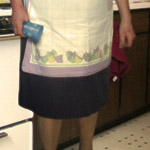 Dangers abound for the insouciant child, but by far the most treacherous waters to navigate are those of socialization. The survival of one’s formative years is largely dependent upon the learning of arbitrary rules hatched by adults. Even so, where matters of protocol were concerned, I excelled. I rather enjoyed the code of it. I was a quiet child, detail-minded, generally thoughtful, and courteous to a fault. My single downfall, if it could be so called, was that I didn’t like to use peoples’ names.
Dangers abound for the insouciant child, but by far the most treacherous waters to navigate are those of socialization. The survival of one’s formative years is largely dependent upon the learning of arbitrary rules hatched by adults. Even so, where matters of protocol were concerned, I excelled. I rather enjoyed the code of it. I was a quiet child, detail-minded, generally thoughtful, and courteous to a fault. My single downfall, if it could be so called, was that I didn’t like to use peoples’ names.
It’s not something I had never articulated, and no one had ever commented on it to me. But in fact my entire childhood was geared toward determining how to meet my needs without using anyone’s name. These aren’t conscious decisions one comes to, but innate inclinations one happens upon in the course of self realization.
For two years I was able to get by without saying my babysitter’s name. Whenever one of the other kids asked her for something, I could simply attach a “Me too, please!” to the request, and I’d be in. My technique was transparent, and all the more compelling for the “please,” at the end. The “please” is the bane of most kids’ existence. Every book on etiquette obsesses over the necessity of the “please.” And why not? It is, after all, the most important bit. Luckily for me, that word never presented a problem. I savored it, in fact, and the word dropped from my lips like silk.
One of life’s lessons that always comes too late is that avoidance only makes the inevitable worse. I’m not sure how it happened, but something was stuck in my babysitter’s craw the day she made me learn it. I recall running into the kitchen from the heat of a summer afternoon with one of the other children. I always took particular care not to let the screen door slam shut, so thoughtful was I. “Mrs. Dutrow, can I have a glass of kool aid?” asked Mark.
“Me too, please!” I said.
My babysitter retrieved a single plastic cup from the shelf, filled it with cool sugar water, handed it to my colleague, and then regarded me cooly. “Say my name,” she said to me.
My friend took this as his cue to exit, while I stood rooted to my spot on the worn kitchen linoleum. “What?” was all I could muster. There’s nothing like running headlong into an invisible barrier that leaves you questioning your most basic assumptions. What had just happened? I ran the scene through in my head again, but I couldn’t find anything out of place. Sure, there was the tug of guilt because I knew exactly what I’d been getting away with. Yet I couldn’t believe that she would actually confront me about my disinclination to call people by their names. It seemed an outright violation, if not a cheap grab for control.
“You never say my name,” she said. “You never say anyone’s name.” And there it was, the ugly truth. She might as well have said, “You’re short and slightly cross-eyed,” but that would have been stating the obvious at least. This was different. Like that she had just laid out my secret. Fifteen other children under her daily care, and she didn’t care in the least that any one of them might have overheard.
Continue reading
 “Drink!”
“Drink!”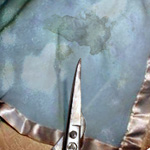 Well before I had a firm command of language, my best friend was a sky-blue blanket called “Meemuk.” Meemuk accompanied me wherever I went, clenched in my fleshy finger lobes, and with one corner of it typically providing me with some blankety nourishment.
Well before I had a firm command of language, my best friend was a sky-blue blanket called “Meemuk.” Meemuk accompanied me wherever I went, clenched in my fleshy finger lobes, and with one corner of it typically providing me with some blankety nourishment. Lost in thought, I accidentally sprinted up eight flights of stairs this morning instead of six, passing my floor in a daze. I was thinking about the mistake I’d made when I was but a lad of eleven. Singularly well-burdened of intellect, I was, even then, wont to losing myself in contemplative spells, to the detriment of chore, courtesy, and couth. So it was that I found myself dangling from the business end of my stepfather’s clenched fist, my slackened feet leaving circular furrows in the gray mounds of his father’s ashes. One might conclude that my mistake lay in tipping his precious urn in the first place, especially as I was using it for balance as I sought the box of porn magazines in my stepfather’s den closet. But in hindsight the far greater mistake was my reaction to the fury directed at me.
Lost in thought, I accidentally sprinted up eight flights of stairs this morning instead of six, passing my floor in a daze. I was thinking about the mistake I’d made when I was but a lad of eleven. Singularly well-burdened of intellect, I was, even then, wont to losing myself in contemplative spells, to the detriment of chore, courtesy, and couth. So it was that I found myself dangling from the business end of my stepfather’s clenched fist, my slackened feet leaving circular furrows in the gray mounds of his father’s ashes. One might conclude that my mistake lay in tipping his precious urn in the first place, especially as I was using it for balance as I sought the box of porn magazines in my stepfather’s den closet. But in hindsight the far greater mistake was my reaction to the fury directed at me. Thousands of fake lives were at stake, and I’d dropped the ball. Actually, I’d selected the wrong menu item, and as a result the jukebox uploaded the wrong telemetry tape. I was a rookie, still in training, but to my authoritarian instructors I was nothing more than a liability. My supervisor was playing terminal jockey in the pit next to me until I figured out the process. As he snatched the light pen from my hand he said, “You load the wrong tape, you compromise the mission. What if we’d been live?”
Thousands of fake lives were at stake, and I’d dropped the ball. Actually, I’d selected the wrong menu item, and as a result the jukebox uploaded the wrong telemetry tape. I was a rookie, still in training, but to my authoritarian instructors I was nothing more than a liability. My supervisor was playing terminal jockey in the pit next to me until I figured out the process. As he snatched the light pen from my hand he said, “You load the wrong tape, you compromise the mission. What if we’d been live?”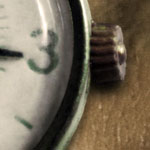 When I was a lad I had a watch that was five minutes behind. Setting that watch at the beginning of each school day was part of my morning ritual, followed closely by the familiar litany: key, money, watch, belt, pencil. They were essential to my peace of mind, and had to be on my person before I set out for school.
When I was a lad I had a watch that was five minutes behind. Setting that watch at the beginning of each school day was part of my morning ritual, followed closely by the familiar litany: key, money, watch, belt, pencil. They were essential to my peace of mind, and had to be on my person before I set out for school.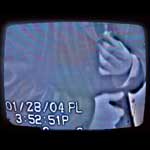 I look down at the clutter of objects in my hand and worry that I’ll be caught shoplifting this time. Some might call it nonsense, being that these are, after all, my own things. But only I know why the thought is so persistent.
I look down at the clutter of objects in my hand and worry that I’ll be caught shoplifting this time. Some might call it nonsense, being that these are, after all, my own things. But only I know why the thought is so persistent.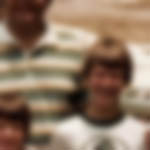 “Hello there.” My stepfather would say hello to us whenever he entered the room, invariably. I quickly learned–by rote–that a response was expected. It didn’t seem so outrageous, of course. In fact it seemed a friendly enough thing to do, so I tried it myself for a while. “Hello, Mom. People? Hello. Hello, all.” It didn’t take though.
“Hello there.” My stepfather would say hello to us whenever he entered the room, invariably. I quickly learned–by rote–that a response was expected. It didn’t seem so outrageous, of course. In fact it seemed a friendly enough thing to do, so I tried it myself for a while. “Hello, Mom. People? Hello. Hello, all.” It didn’t take though.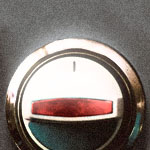 My great grandparents could speak with authority about outhouses. I once found a cracked photograph of them fawning over a new refrigerator–the kind that required a fresh supply of ice to stay cold. The device was new then, and they were proud to own one, and a side benefit of ownership was the opportunity to forge a new friendship with the friendly neighborhood iceman. He would drop by every few days or so, they told me, to deliver their ice, hefting the dripping brick up into the metal-lined compartment with a pair of oversized tongs.
My great grandparents could speak with authority about outhouses. I once found a cracked photograph of them fawning over a new refrigerator–the kind that required a fresh supply of ice to stay cold. The device was new then, and they were proud to own one, and a side benefit of ownership was the opportunity to forge a new friendship with the friendly neighborhood iceman. He would drop by every few days or so, they told me, to deliver their ice, hefting the dripping brick up into the metal-lined compartment with a pair of oversized tongs.